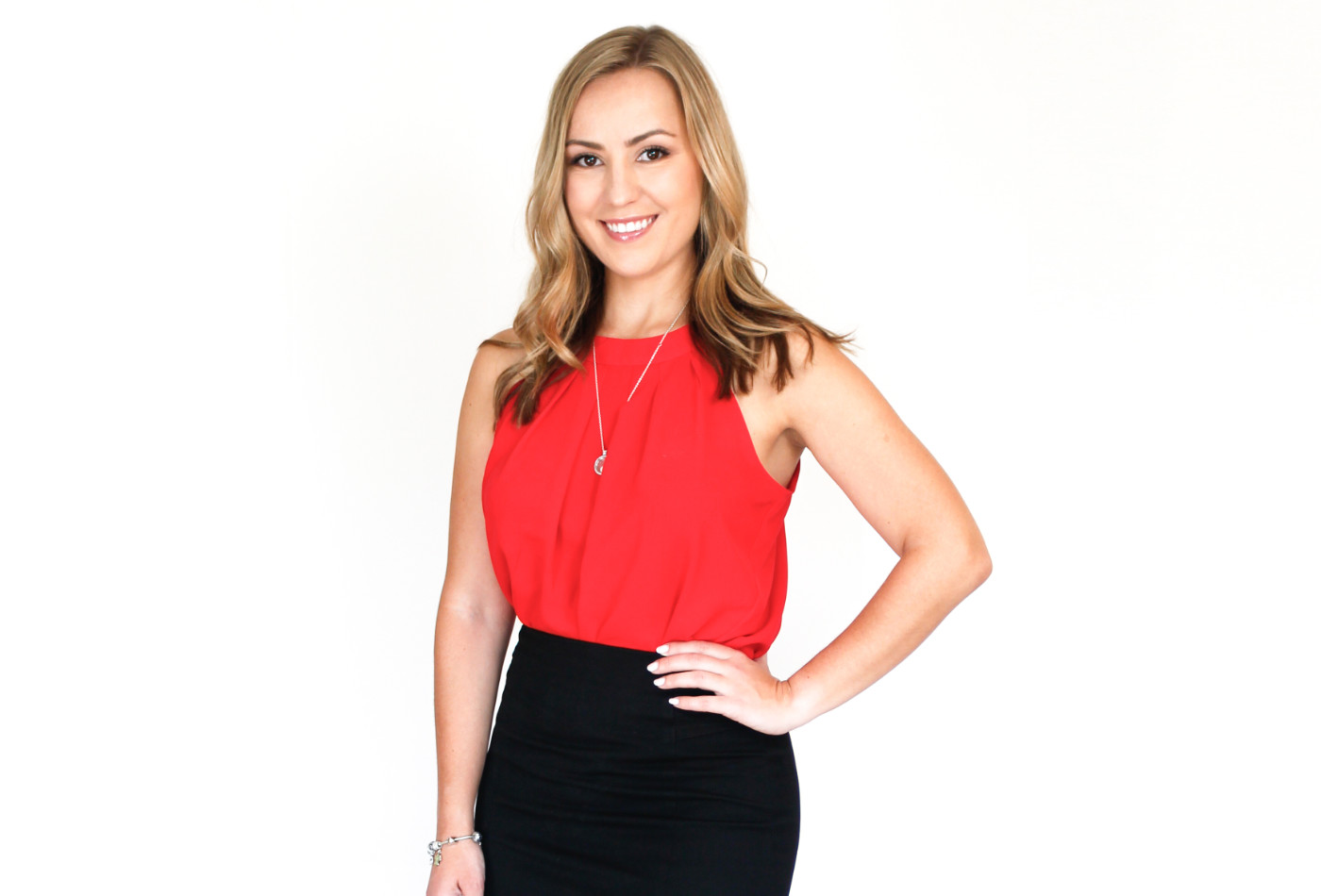
Meet Anna: An Expat Professional
Can you tell us a bit about your background?
I’ve lived all over the place, but I was born in a beautiful city in Ukraine called Lviv. When I was 18, I moved to Germany for a year, came back to Ukraine and then a year later I went to Poland because I won a contest. A European retail chain called Netto offered two people in the country a job. I was one of the two and they sent me to Poland.
Did you speak Polish?
No, the job was in English. But I did learn Polish.
How do you even start with a new language when you’d already moved there?
Well, knowing some German helped. I started learning the alphabet because my language is cyrillic and Polish and German uses the Latin alphabet. Then, I read a lot. I would take a book or newspaper and look up a word I didn’t know. I still do the same thing in English when I read The New York Times. After five times or ten times of looking it up, I would then remember the word and finally start using it. Watching TV helped, too. But the most important thing is simply trying to speak. You have to let go of the fact that you can’t speak it perfectly. There’s no other way, you just have to try.
How’s your Polish and German today?
I can still read in German, but I can’t talk about high- level items, like politics and philosophy. I feel bad about this. So every time I’m in Germany, I make a real effort to speak in German. Even though it’s easy to speak in English there, I tell them to bear with me while I make myself speak German. Similarly, I went to Poland a week ago, and I used Polish. I use it so I don’t lose it.
My sister in law is Polish and I try to speak with her. After being back in Poland, it’ll take me about 3-4 days to get back to understanding TV again. I notice that I understand their grammar structures, but I do not know necessarily know how to use them.
Expat Life: The Moving
How did you end up in Boston after so many moves in Europe?
Well, after each move, I always came back to Ukraine. I liked the other countries, but I did not feel completely at home. The company I work for now wanted me to go to North America for a long time, but I always declined because it was too far from my family. When I finally did agree to go (to Boston), I was sure I would not stay more than six months. But then I ended up loving it. I felt welcomed and at home. That was four years ago and I’ve stayed in the city with the same company. My career has developed even more here.
How was the move?
Relocation-wise, it went pretty smoothly. I’m not saying everyone will have an easy time, but I have moved a few times before and developed a system to help me acclimate (so I knew how to take care of obtaining a new driver’s license, access good health care, set up banking, etc). This was my 3rd relocation so I knew what to do. Moving doesn’t scare me anymore.
What did you think Boston or the US would be like?
As far as stereotypes, I thought Americans would be very expressive. In Europe, we are more reserved and in Eastern Europe even moreso. I wasn’t sure if I would fit in. I asked myself, would I feel OK? Is it easy to find people who are sincere? I had many reservations and none of them turned out to be true. I’ve met so many smart people in the U.S., like graduates from Tufts, Harvard and MIT. All intelligent, nice, authentic people. Since I already spoke English fluently, it definitely helped me be myself when I first got here.
What were those first few months like? How did you cope with the move?
I made an effort to meet people and participate in social activities. The first few months were tough, as they always are, but once I found my circle and plugged into my interests and hobbies, it was much easier. Also, I get to travel a lot throughout the U.S. and every state is like a different country.
There are many misconceptions about Americans. For instance, people in New York might make fun of Texans a bit (I came from Boston and now live in Texas!), but did you know that Houston was just named the most diverse city in the U.S.?
Wow. I had no idea. I was very open minded when I got here, but I still wasn’t sure if I would fit in, especially as an adult and not as a college student with a built-in support system. But now, when I’m in Europe, I actually sometimes miss the diverse environment of the U.S. It’s much more homogenous in European countries actually.
How did you prepare for your most recent move? Any tips for others?
It helped that I got to choose the city. My company had one office in Boston so I made sure I understood the cost of living and taxes. I read a lot of forums and researched the hell out of it. I asked myself, “Will it be safe to live there? Will I make friends? It is all families or can I meet people?”
My company helped me secure temporary housing before moving via a friend of someone who worked at the company. I rented an upstairs apartment in her home. I actually moved at the worst time — in January. I did this so that I got the full reality of Boston and saw it in the dead of winter.
I prepared for the visa process ahead of time, too, researching which would be best for me if I wanted to stay. I was prepared and brought what I needed from Ukraine like diplomas, what I need from the company and all the necessary paperwork.
Being a Successful Expat
What did you expect that actually did happen?
You cannot expect to love everything. You won’t agree with everything politically, for instance. It won’t be roses all the time. But with the majority of the people here, I share their values. Out of all of my relocations, this one fulfilled my expectations. I wasn’t disappointed.
What completely shocked the hell out of you?
A bill I received from an urgent care facility I went to one weekend, maybe a little.
But truthfully, nothing really shocked me. I did think the food here would be unhealthy, but that wasn’t true at all. You can find healthy food everywhere in this country, oftentimes much more healthy than in Europe.
How would you score that first year, from 1 to 10?
A seven because the winter was so harsh and I didn’t know anyone. I would just go to the office and go home. The city was dead, gloomy and grey. I wondered, “How long do I stay until I can tell myself that I can move back?” But then I also told myself not to judge too quickly. I had to go out and meet people and if I still hated it after a year, then maybe it wasn’t for me.
Around month nine, I started liking Boston. I started to take trips and explored and I got to celebrate all those holidays that I’ve never done before, like Thanksgiving. My colleagues were really nice, and invited me to Valentine’s dinners and Easter lunches. That was another thing, people were very welcoming.
What three top characteristics do you think are needed to be a successful, long-term expat?
Having an open mind, a curious nature and a constant willingness to learn.
And, finally, what role did language training play in the success of your moves?
A super important role! If you move to a new country and you don’t know the language or try, I think it naturally follows that you won’t like it there. You won’t really experience that country. If everyone speaks English around you, you might feel OK, but will you really experience that country and culture? The better I was with the language, the easier it was for me to enjoy the location. Even with English, I moved here to Boston when I was already fluent but now I understand American English much better than three years ago. And people come from different states and have different accents and colloquial words from their region and now I understand those much better, as well. You don’t have to be perfect in the language but you have to make an effort.










